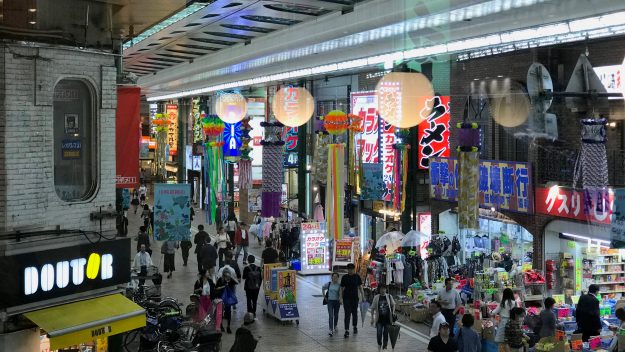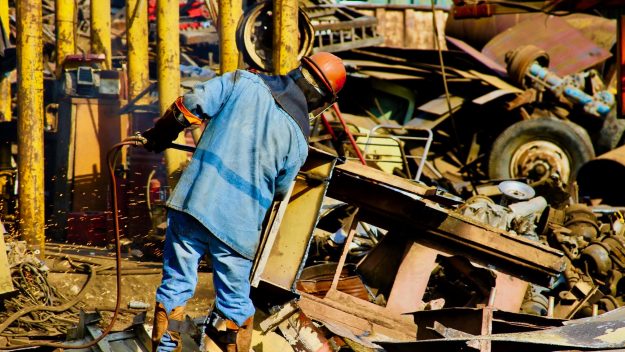Japan’s ageing population and labour shortages spurred a change to immigration policy. Without migrants, Japan would face a danger of labour shortages. Is the UK next?

Japan launched a new labour rule at the end of 2018 that will open up blue-collar jobs to foreign workers mainly from Vietnam, Thailand, and the Philippines. The controversial amendment comes in response to the ageing workforce of Japan, where nearly 28% of the population are over the age of 65 with birth rates reaching the lowest level in history.
Without migrants, Japan would very likely be confronted with a peril of labour crisis; and the UK could be next in the queue of the economic and societal death trap. Like Japan, an ageing workforce, uncertainties over post-Brexit immigration policy and multinational companies relocating their headquarters and European offices have left many businesses feeling under threat.

“It was back in 2014 when we actively started to employ workers from abroad”, says Mr Hiroki Sekine who is an owner of a Japanese convenience store LAWSON – one of the biggest franchise chain convenience stores in Japan. “[Because] we were short on staff. At the same time, I thought it would be helpful for the coming future where there will be more tourists towards the 2020 Olympics and more foreigners moving here. One of the industries with a critical staff shortage is hospitality, particularly hotels”, he explains.
A recent survey by the Financial Times states that despite a record low unemployment rate of 4%, some sectors of the British economy such as ‘hospitality’ and ‘information and communications’ have seen the biggest labour shortages. About 50% of the workers in a sector that encompasses everything from coffee bars and nightclubs are under 30 and the number of 18 to 24-year-olds entering the job market is far fewer as a consequence of a dip in the birth rate around the millennium. Many construction workers have left the industry and those who stayed are heading for retirement, and some EU nationals may have been discouraged from coming to the UK after the Brexit vote.
While reasons for labour shortages vary from industry to industry and country to country, the two islands have oddly similar reasons such as poor work-life balance, lack of appropriate skills and experiences, low pay, and so on.

One of the major factors to the current labour crisis, however, is the ageing population. Although in 2016 over 65-years-olds in the UK only made up of 18% of the total population, the Office for National Statistics claims that in 50 years’ time there will be an additional 8.6 million people aged 65 and over – a population broadly equivalent to the size of London today.
Sectors such as agriculture that involve more physically demanding tasks do not have enough people in the UK to do the job, owing to a growing decline in young people’s interest in the industry as well as the ageing workforce. Ironically, agriculture labour shortages are then aggravated by the fact that rural isolated areas where farms are most in need of workers are often home to the highest populations of 65-year-olds and over.
Over the past few decades, people from the EU and beyond have been a lifesaver for the UK’s economy; nevertheless, Brexit and a very likely new immigration policy to possibly follow it could be detrimental to the UK’s labour market.
Amid the UK’s 10-year-low birth rate in 2017, Japan’s demographic time bomb shouldn’t just be looked at as someone else’s business. Until recently, Japan was operating a so-called close-knit country policy, which encouraged ethnic and cultural homogeneity – hence the strict restrictions on immigration, which is much like the UK.
In recent years, the Japanese government has been opting to focus on encouraging more women into work, as well as increased activity by the elderly and a parallel attempt on increasing the nation’s birth rate. However, the desperate need for workers led to the new labour policy being forced through Japan’s parliament despite significant opposition, as it was acknowledged that without foreign workers, positions could just not be filled.
LAWSON manager Mr Sekine recalls: “When we decided to embark on the employment of foreign workers in 2014, it was absolutely not an order from up top. It was our voluntary measure.”
On the contrary, there are serious concerns with Japan’s immigration schemes. Set up in early 1990s, Technical Intern Training Programme (TITP) was designed to provide knowledge and training in technical skills for workers from developing countries such as Vietnam and the Philippines. The scheme has been strongly linked to human rights abuses such as trafficking and forced labour, which some critics described as ‘akin to modern slavery’.
“Many people from such developing countries come to Japan expecting the country to be the best in hospitality, hoping that they can absorb something good about the culture. But some companies take their innocence to their advantage. They must be protected under laws at any cost”, explains Mr Sekine.

The UK has its own history of migrant exploitation, namely in sectors such as agriculture, fisheries, hospitality and construction.
To protect against further exploitation, the Japanese government launched a crackdown on its foreign worker policy that will actively encourage companies to directly employ workers instead of through exploitative brokers. It will also offer salaries equal to those of Japanese workers in the same position, language support, training and more.
All of these strategies are what the UK might be wise to consider for any future immigration labour policy. Both countries have much work to do regarding their treatment of foreign workers.
